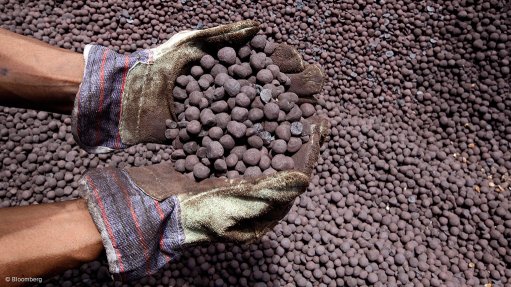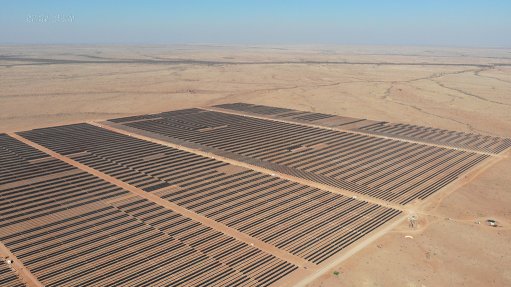Emphasis placed on recycling
In response to both consumer and legislative pressures, some of South Africa’s largest retailers and brands are now putting a greater emphasis on the recyclability of their packaging.
Law firm Webber Wentzel states that significant volumes of waste are still being diverted to landfill sites, which reflects a continued and dangerous “take-make-dispose” relationship with consumer products.
Organisation body the World Wildlife Fund South Africa’s plastics report, published in November 2020, showed that out of the major municipalities, only eThekwini metropolitan municipality in KwaZulu-Natal and the City of Ekurhuleni metropolitan municipality in Gauteng have significant landfill space left. There is therefore an urgent need to divert plastic and packaging waste and other end-of-life materials away from landfill sites.
The Plastic Carrier Bags and Plastic Flat Bags Regulations published under the Environmental Conservation Act, 1989 (Plastic Bag Regulations) are premised on the popular slogan: “Reduce, Reuse, Recycle”. With the plastic bag levy introduced in 2004 under the Customs and Excise Act, 1964, an indirect tax has been imposed on the movement, manufacture, or consumption of plastic bags. Retailers pass this tax on to consumers by charging for every sale of a plastic bag.
The Plastic Bag Regulations also impose certain "compulsory specifications" on plastic bags (such as a minimum thickness of 24 microns), to make plastic bags more environment friendly and reusable.
Under the most recent amendments to the Plastic Bag Regulations, there is now a deadline that all plastic bags should contain designated amounts of "post-consumer recyclate" at certain intervals, until they ultimately contain 100% post-consumer recyclate content by January 1, 2027 (subject to permissible exceptions).
However, the legislators in South Africa have acknowledged that we need to do more in encouraging circular economy thinking and practices. In May 2021, the Extended Producer Responsibility (EPR) Regulations published under the National Environmental Management: Waste Act, 2008, took effect, marking a new waste management policy approach that is now regulated by law.
In support of the EPR Regulations and their requirements, the Department of Forestry, Fisheries, and the Environment published a Draft Packaging Guideline: Recyclability by Design for Packaging and Paper in South Africa (Draft Packaging Guideline) on October 06, 2021. The EPR Regulations’ main purpose is to reduce the volume of packaging in landfill sites by improving product design, increasing the quality of production practices and promoting waste prevention.
The Draft Packaging Guideline focuses on the design of packaging to facilitate recycling and represents a small but important aid for the journey to sustainable production and consumption, specifically seeking to maximise the value of recyclate, where the specification of recycled materials in the design of new products supports the recovery of material.
These measures, along with ethical marketing from large retailers, demonstrate the importance being placed on sustainable packaging and provides accountability mechanisms to root out false advertising in various industries. Failure to adopt and abide by these mechanisms will see a significant increase in ESG-related litigation based on misrepresentation and sustainability falsehoods in product labelling and packaging design.
It is becoming increasingly clear that the sustainability and competitiveness of brands is linked to their ability to give effect to the concept of "recyclability", namely that it must become both technically and economically feasible to recycle product packaging. This will require brands to support and implement circular economy practices and initiatives in packaging design.
The informal waste sector will also play a crucial part in the mandated EPR schemes that will be implemented in the packaging sector, as will innovative technologies to track packaging materials, their use, and their composition throughout their lifecycle.
Owing to climate change, recyclability should be at the forefront of product design and development, and brands need to remember that they have an ethical and legal duty to contribute to the South African consumer sector's environmentally sustainable future.
Comments
Press Office
Announcements
What's On
Subscribe to improve your user experience...
Option 1 (equivalent of R125 a month):
Receive a weekly copy of Creamer Media's Engineering News & Mining Weekly magazine
(print copy for those in South Africa and e-magazine for those outside of South Africa)
Receive daily email newsletters
Access to full search results
Access archive of magazine back copies
Access to Projects in Progress
Access to ONE Research Report of your choice in PDF format
Option 2 (equivalent of R375 a month):
All benefits from Option 1
PLUS
Access to Creamer Media's Research Channel Africa for ALL Research Reports, in PDF format, on various industrial and mining sectors
including Electricity; Water; Energy Transition; Hydrogen; Roads, Rail and Ports; Coal; Gold; Platinum; Battery Metals; etc.
Already a subscriber?
Forgotten your password?
Receive weekly copy of Creamer Media's Engineering News & Mining Weekly magazine (print copy for those in South Africa and e-magazine for those outside of South Africa)
➕
Recieve daily email newsletters
➕
Access to full search results
➕
Access archive of magazine back copies
➕
Access to Projects in Progress
➕
Access to ONE Research Report of your choice in PDF format
RESEARCH CHANNEL AFRICA
R4500 (equivalent of R375 a month)
SUBSCRIBEAll benefits from Option 1
➕
Access to Creamer Media's Research Channel Africa for ALL Research Reports on various industrial and mining sectors, in PDF format, including on:
Electricity
➕
Water
➕
Energy Transition
➕
Hydrogen
➕
Roads, Rail and Ports
➕
Coal
➕
Gold
➕
Platinum
➕
Battery Metals
➕
etc.
Receive all benefits from Option 1 or Option 2 delivered to numerous people at your company
➕
Multiple User names and Passwords for simultaneous log-ins
➕
Intranet integration access to all in your organisation


















